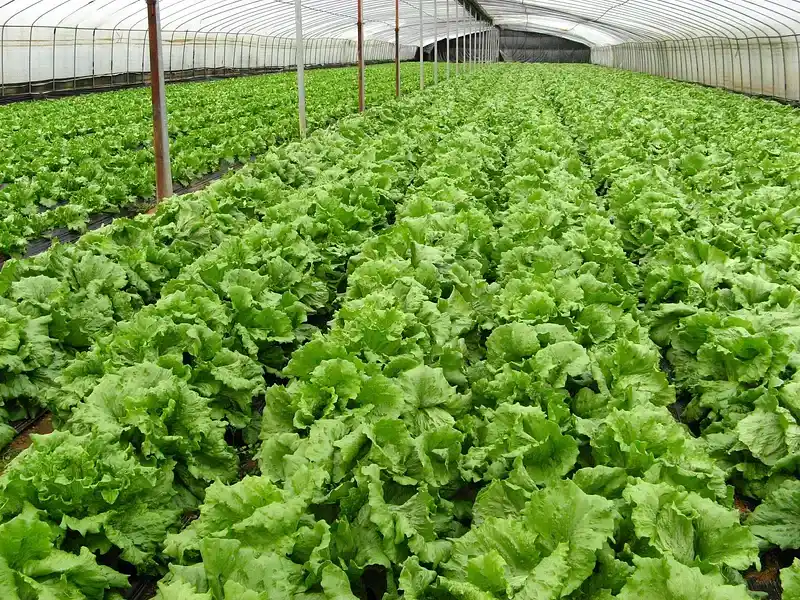Introduction:
In today’s fast-paced world, where technology continually advances and concerns about the environment grow, organic farming has emerged as a beacon of sustainable agriculture. This practice seeks to produce healthy, chemical-free crops while minimizing harm to the environment. Surprisingly, technology and organic farming are not contradictory concepts; instead, they can work hand in hand to create a more sustainable future for agriculture.
The Role of Technology in Organic Farming:
Precision Agriculture:
Precision agriculture, often referred to as “smart farming,” is a technological approach that plays a crucial role in organic farming. It involves using sensors, GPS, drones, and data analytics to monitor and manage crop conditions efficiently. This technology allows farmers to make data-driven decisions, optimize resource usage, and reduce waste. For organic farmers, precision agriculture ensures that natural resources like water and soil are used efficiently, promoting sustainability.
Soil Health Monitoring:
One of the core principles of organic farming is maintaining healthy soil. Technology aids in this endeavor through soil sensors and monitoring systems. These tools assess soil quality, moisture levels, and nutrient content, helping farmers make informed decisions about organic fertilizers and soil amendments. By preserving soil health, technology contributes to the long-term sustainability of organic farming.
Pest and Disease Management:
Organic farming relies on natural methods for pest and disease control. Technology assists in identifying and managing these issues. Remote sensing, for instance, can help farmers detect early signs of crop stress caused by pests or diseases. This allows for timely intervention with organic pest control methods, reducing the need for chemical pesticides.
Efficient Water Management:
Water scarcity is a growing concern in agriculture. Organic farming embraces sustainable water management practices, and technology offers valuable tools for this purpose. IoT (Internet of Things) devices and irrigation systems equipped with smart sensors enable precise control over water usage. Organic farmers can avoid over-irrigation and wastage while ensuring that crops receive the necessary moisture for optimal growth.
Organic Certification Tracking:
Certification is essential for organic produce to maintain credibility and trust with consumers. Technology streamlines the organic certification process by providing digital records, tracking systems, and data analytics. Farmers can maintain accurate records of organic practices, making it easier to comply with certification standards and demonstrate their commitment to organic farming.
Market Access and Consumer Engagement:
Technology has transformed how organic farmers connect with consumers. E-commerce platforms, social media, and mobile apps enable direct marketing and sales to consumers who value organic produce. Farmers can also engage with consumers through educational content about organic farming practices, building a stronger connection and trust.
The Benefits of This Synergy:
Sustainable Agriculture:
The integration of technology into organic farming enhances its sustainability. By optimizing resource usage, reducing waste, and improving yield predictions, technology helps organic farmers minimize their environmental footprint while producing high-quality, organic products.
Increased Productivity:
Technology allows organic farmers to increase productivity without compromising their commitment to organic principles. With better data, they can make informed decisions about planting, harvesting, and resource allocation, resulting in improved crop yields.
Greater Market Access:
Technology opens up new avenues for marketing organic produce. Farmers can reach a broader customer base and engage with consumers who prioritize sustainable, organic products. This expanded market access can lead to increased sales and income for organic farmers.
Improved Soil Health:
Technology aids in soil health management, ensuring that organic farming practices maintain fertile and resilient soils. Healthy soil, in turn, contributes to better crop growth and long-term sustainability.
Conclusion:
The relationship between organic farming and technology is not one of opposition but of synergy. By harnessing the power of technological advancements, organic farmers can enhance their ability to produce chemical-free, environmentally friendly crops while ensuring long-term sustainability. This partnership between organic farming and technology paves the way for a more sustainable and ecologically responsible agricultural future.

